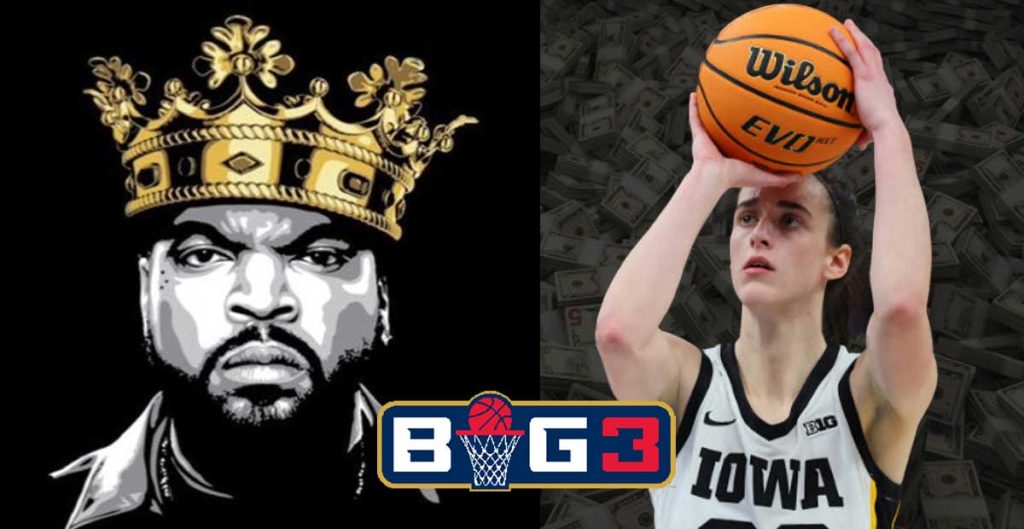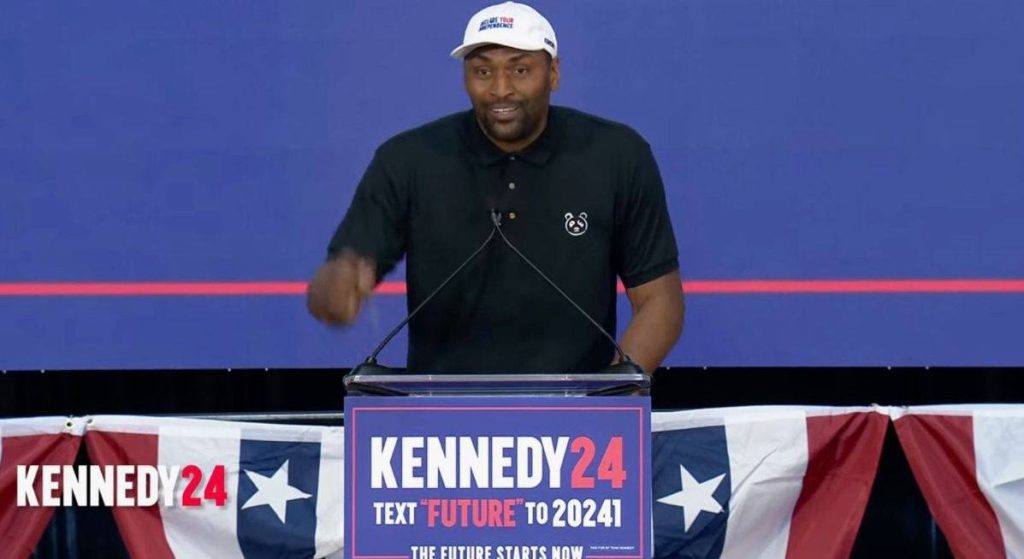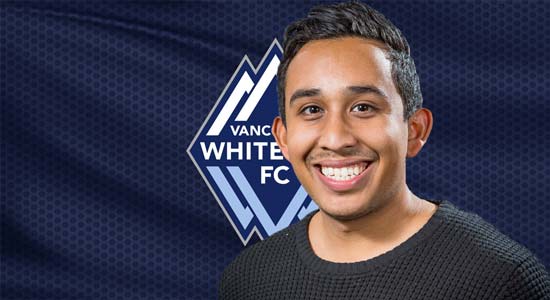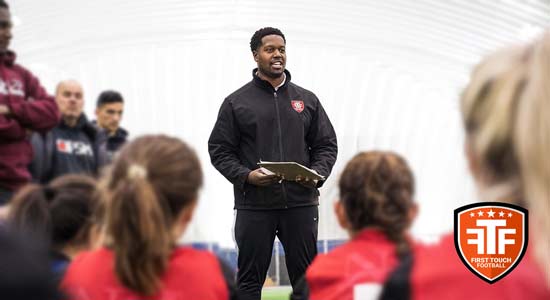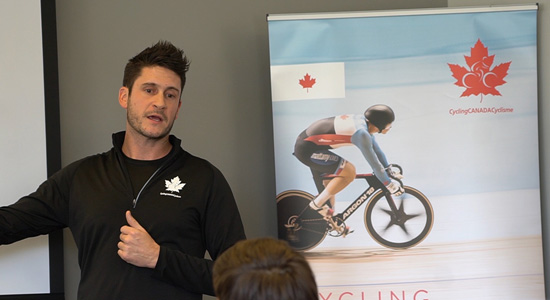
1 on 1 with Josh Peacock | Events and Partnership Manager | Cycling Canada

I’m lucky that the nature of the role itself is quite conducive to being creative and thinking on your toes.
Josh Peacock
Events and Partnership Manager
Cycling Canada
The Latest
Jontay Porter Banned From The NBA For Life
Iowa vs LSU: A Landmark Moment in Women’s College Basketball
Former NHLer Josh Ho-Sang Now A Rapper
Metta World Peace Endorses RFK Jr. for President 2024
Tell us about your role as the Events and Partnership Manager of the Cycling Canada.
These days, the word “typical” is a relative term!
Overseeing both our national events calendar as well as our corporate partnership portfolio usually means a decent amount of emails to filter through in a day.
Pandemic or no pandemic, typically about half of each day is spent in meetings.
On the events side, my day-to-day involves taking the time with our various event stakeholders (i.e. local organizing committees, municipalities, provincial federations) to discuss any particular challenges they may be facing or to help them see through the vision they have for their event.
On the partnerships side, it is a mix between liaising with current partners and doing the day-to-day legwork involved with attracting new ones.
Behind the scenes there is always a fair bit of conceptual work being done whether that is building frameworks for the implementation of new event strategies or looking for new and unique ways for our partners to enhance value in their partnerships – this one is particularly at the forefront during our current circumstances.
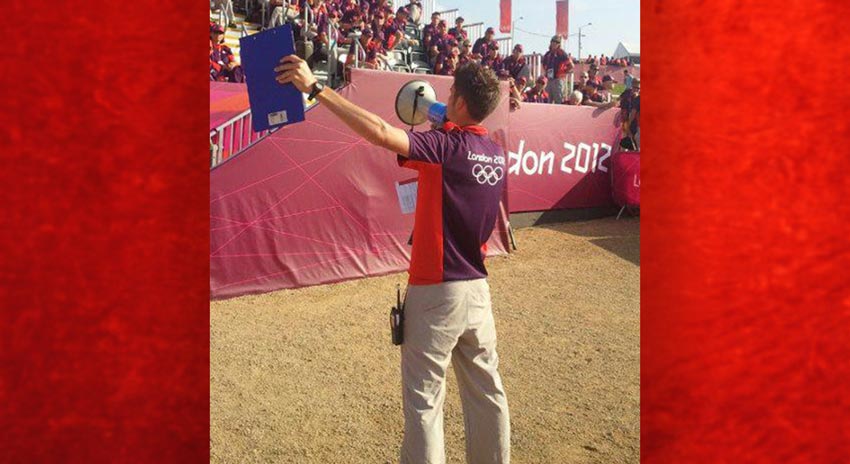
2Managing sport events almost always comes with challenges given the unpredictable nature of sport. Talk about how you overcome these challenges as Events and Partnership Manager and have learned not to be hard on yourself for stuff that’s probably beyond your control.
Managing the unpredictability of sport is absolutely one of the biggest challenges with a role like this and most definitely an aspect that involves new learnings every day.
Particularly on the events side, a lot of folks are lured into a role like this thinking “how cool is this? I get to spend weekends at events AND get paid for it??”.
In reality, there are a lot of behind the scenes hours that go into event production and many curve balls that get thrown your way in the process.
The biggest piece of advice I always give to someone who is new in an events role, which might sound super obvious to some, is “know your shit”.
You can never predict every weird scenario that will come your way, but you can take the time to familiarize yourself with all of the concrete elements of an event which you will inevitably need to know like the back of your hand by the time you’re on the ground (i.e. schedule, venue specs, etc.).
By knowing your shit, you save yourself the mental capacity to deal with the real issues as they’re presented to you on the event day.
One of my favourite takeaways from working on a venue team at London 2012 was the “pens down” approach.
Under that ideology, you hit a certain point in an event delivery timeline where the planning is done and it’s time to execute.
By the time you’ve hit “pens down”, you’ve established a framework you’re confident in and all that’s left is to execute on the ground.
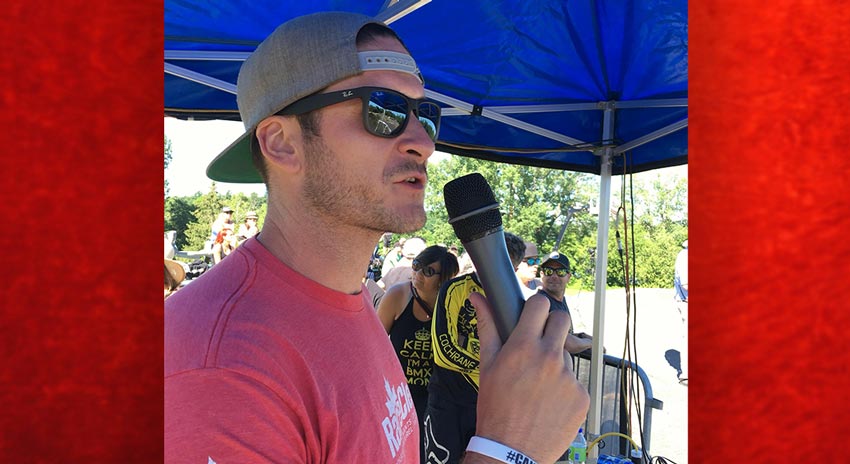
3How much freedom and creativity do you have in your role as Event and Partnership Manager?
I’m lucky that the nature of the role itself is quite conducive to being creative and thinking on your toes.
Not unlike a lot of other industries, sport is something that is always evolving and progressing. As such, those that work in this space have the opportunity to build a similar mindset.
Particularly, I think that working for a National Sport Organization like Cycling Canada provides staff with a bit more freedom to have direct, first-hand exposure across a number of different functional areas in the organization which may not be as simple to do in other organizations.
In my role, I am constantly challenged with trying to find innovative solutions to solve everyday problems whether it be on the ground or in the planning stages.
Naturally, there is always some oversight to keep the creative juices in check, but I find that overall Cycling Canada is a place that encourages us to think outside of the box.
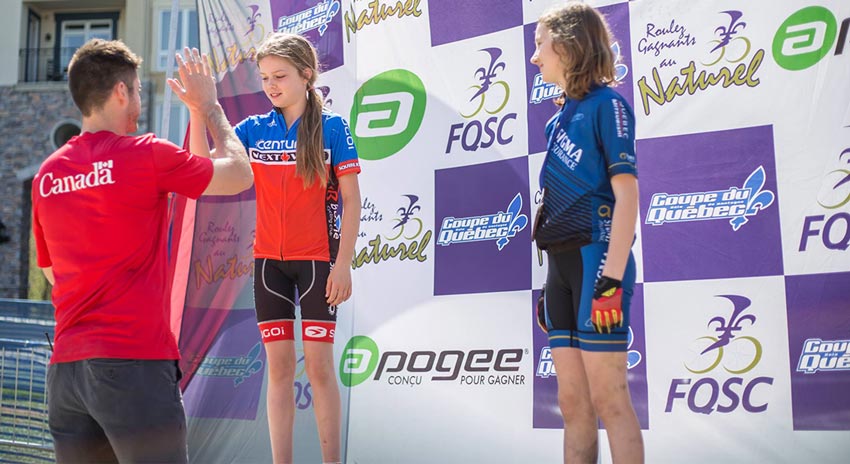
4Many decisions at sports events are guesstimates and subjective judgement calls. Tell us about your most memorable guesstimate or subjective judgment call with Cycling Canada!
I remember several years ago when I had just started working at Cycling Canada I was on-site at an event acting as the Technical Delegate for a National age-class Road Cycling Championships.
That particular race was in a very rural setting and did not have a massive presence of on-site spectators. As with most large-scale road cycling events, there was to be a “race caravan”, which is basically the line of vehicles you see following the race with various roles such as neutral mechanical support, race doctor, race officials, etc.
For that particular race, we had a vehicle sponsor who had provided the necessary number of vehicles required to fulfill all of the roles in that race caravan as well as a generous cash component to help finance the event.
As a part of my regular morning check, I inspected each caravan vehicle to ensure it was in place, had the proper labelling and proper position in staging prior to the race starting. Everything was in place.
I then turned my attention to the chief official to officially start the race. As the racers left the line and the vehicles pulled out one-by-one, I noticed an extra vehicle following behind that was not only not the same brand as our vehicle sponsor, but was a direct competitor.
In speaking with the chief organizer who authorized this car into the race at the last moment, he quickly realized the error but also pointed out that the vehicle was full of media who would be instrumental in sharing the event/story to the public.
Given the event itself was very low attendance spectator-wise and did not have any sort of expo, I knew that the on-site impact would be minimal.
With that said, I also knew that any photos of the event showing that car would put our relationship with our vehicle sponsor in a very bad position.
The decision was made that the vehicle would be pulled from all subsequent starts and that for this particular race the vehicle would remain in the race but would not under any circumstances be photographed.
I took that moment to speak with each official photographer and videographer on-site, and they all took note and understood the situation.
The vehicle did not show up in any event photos/media, and quite the contrary – those media were now VERY aware of our vehicle partnership and went out of their way to photograph the actual sponsor vehicles.
In the end, it all worked out in our favour – the event was not delayed or impacted, and the sponsor had an excess of great photos showing their cars in action.
That said, I sprouted a few new grey hairs when that vehicle drove past me off the start line…
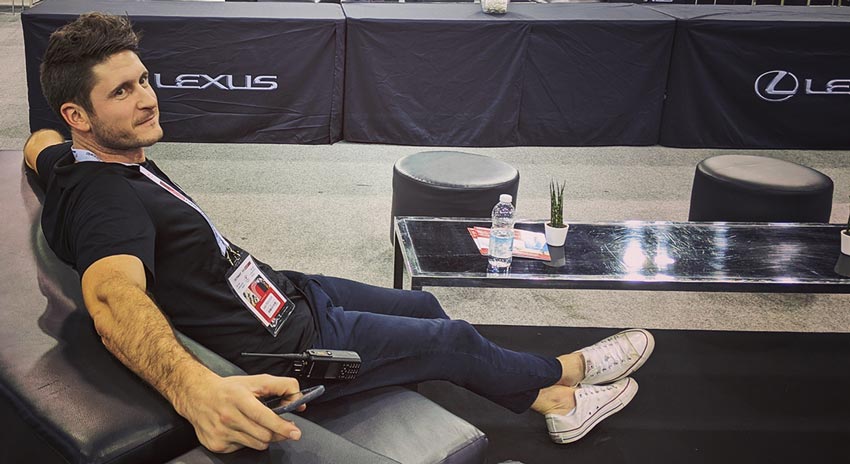
5While working in events with Cycling Canada, how have you been able to manage the stress of meeting deadlines and what are three tips you have for young professionals?
My three most important pieces of advice would be:
1 Get some rest!
In one of my favourite reads, Brad Stulberg & Steve Magness review the more commonly known growth equation in their book “Peak Performance” which states stress + rest = growth.
The idea being that although stress isn’t always a bad thing, we need to ensure we’re balancing it with the appropriate level of rest so that we can continue to grow as individuals and be as effective as possible in our roles.
Event delivery has no problem producing the stress component along with the 16hr days, but we need to remember to factor in rest wherever possible to avoid burnout and keep the flame lit!
2 Don’t be afraid to get your hands dirty.
Event delivery is all about teamwork. Yes, you might be at an event to do a specific job, but jumping in and supporting a fellow staff member or volunteer can go a long way to build morale and motivate the team.
One of my least favourite things to hear on-site at an event is “sorry, that’s not in my job description”. Small gestures of support can go a long way to ensure the event is delivered on target and on time.
3 Don’t take it personally.
In the process of event delivery, there are often a lot of emotions thrown around. Dwelling on a confrontation or negative interaction can affect your capacity to act as a leader and can impact your judgement if not kept in check.
Try to take those interactions in-stride and table them for a bit of reflection when the dust has settled.
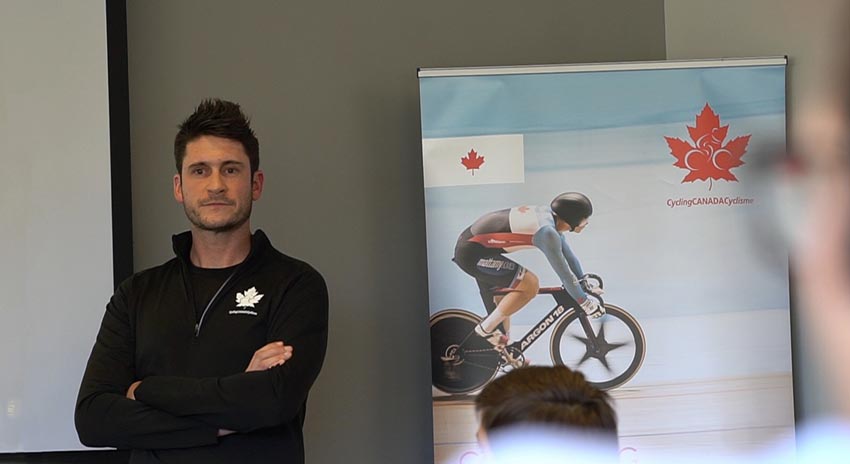
[get_current_post_author_pic_and_name]
Events and Partnership Manager Josh Peacock clearly plays an important role for Cycling Canada. Through a pandemic, he continues to use his very creative mind to keep the community engaged and stakeholders happy. And his experience in adjusting to last-minute errors shows the dedication it takes to ensure everyone is satisfied. His advice to young sports professionals is also an important note to take, especially for those just about to graduate and/or looking for jobs and internships. We can all really learn from Josh's experiences and advice for our own futures in a time when we may not have that much hope. His positive words of encouragement for an eventual return to normalcy for us and sports fans alike motivate me to look forward to the day we can all be back to not just supporting our home teams, but attending many sporting events as well!





